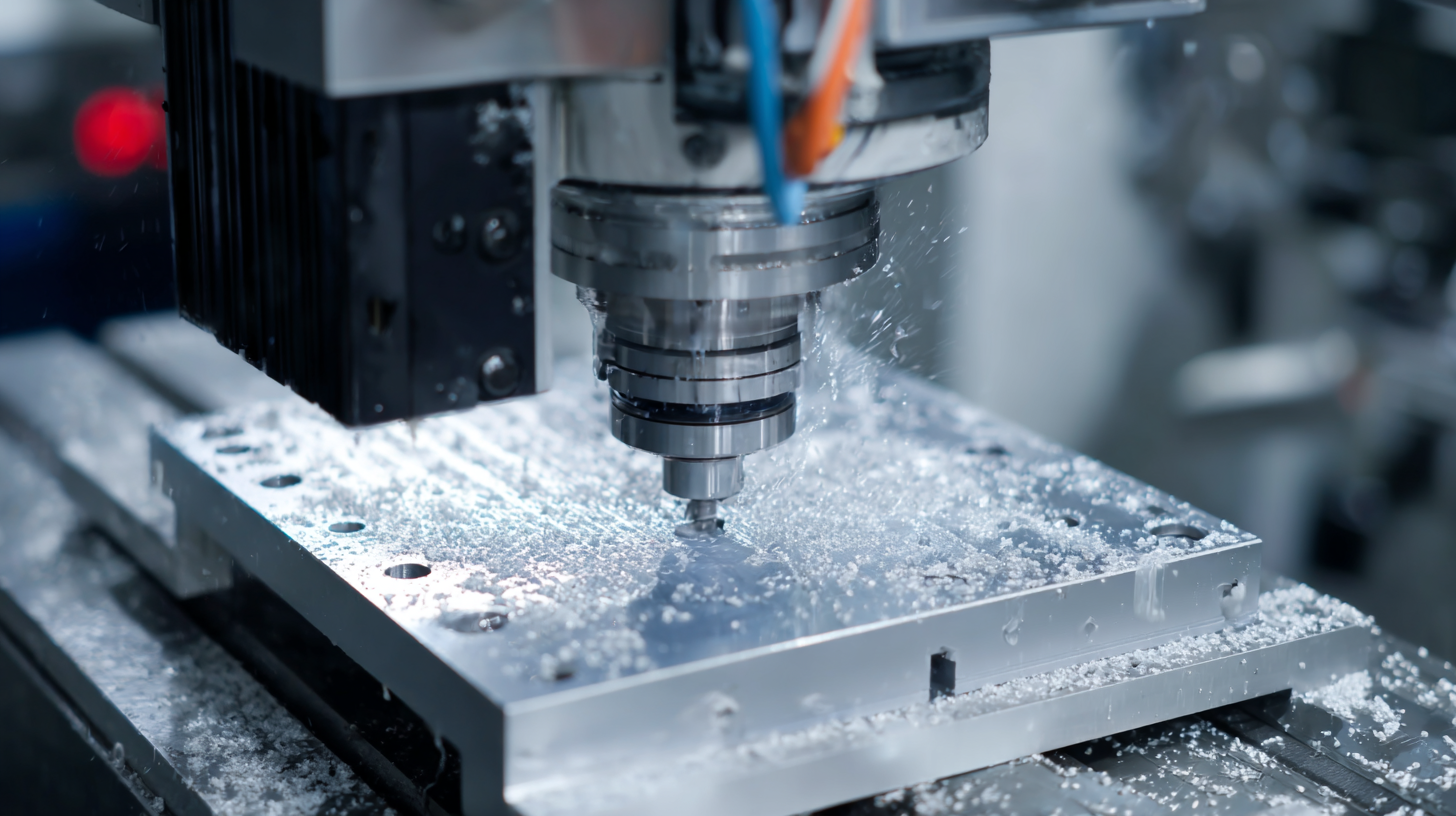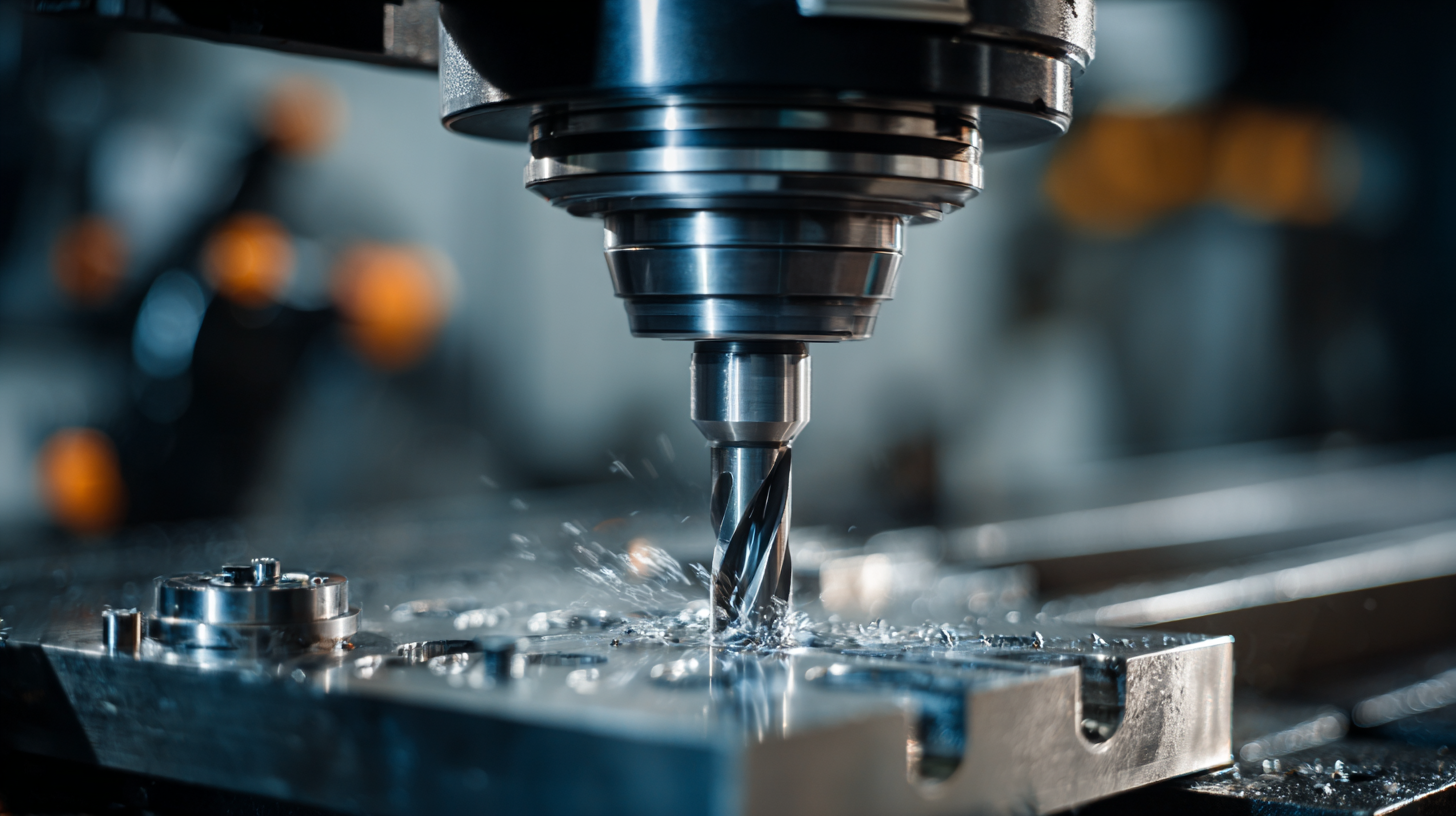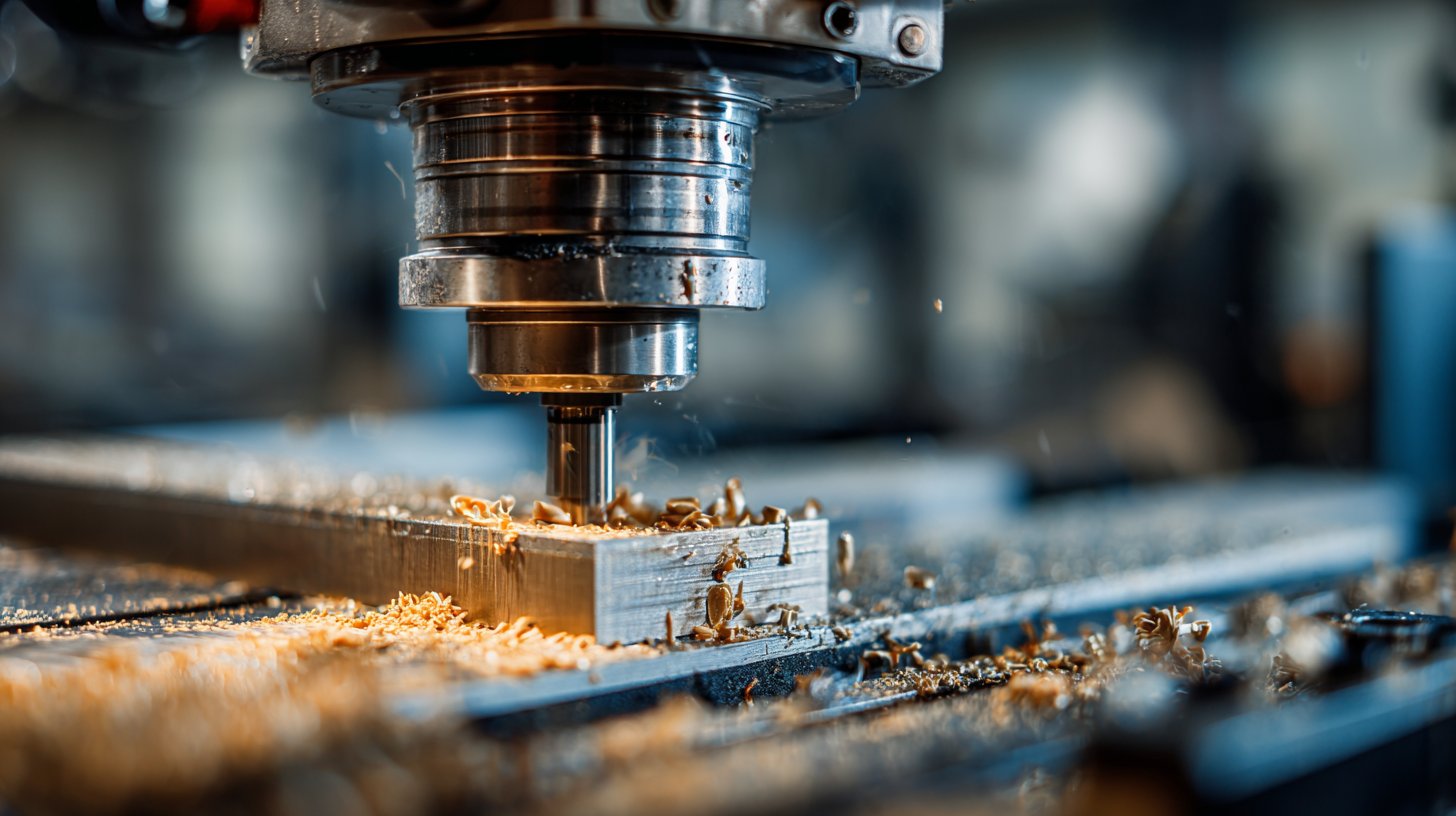Blog
Master Your Craft with the Ultimate Guide to the Best Small CNC Machine for Your Business
In today's rapidly evolving manufacturing landscape, the small CNC machine has emerged as a cornerstone for businesses seeking efficiency and precision. According to a recent report by MarketsandMarkets, the global CNC machine market is projected to reach $117.72 billion by 2025, driven by the increasing demand for automated solutions in various industries. Small CNC machines, in particular, provide an accessible gateway for small to medium-sized enterprises to leverage advanced manufacturing technologies without the hefty investment required for larger machines. With capabilities that span from intricate engraving to complex machining tasks, these machines not only enhance productivity but also enable customization in production. As we delve into the ultimate guide for selecting the best small CNC machine for your business, we will explore the latest industry trends and offer a comprehensive comparison of available models to help you master your craft and stay competitive in 2025 and beyond.

Choosing the Right Small CNC Machine for Your Business Needs
When choosing the right small CNC machine for your business needs, it's essential to consider various factors that influence both performance and cost-effectiveness. According to a recent report by the Association for Manufacturing Technology, the CNC market is projected to reach $77 billion by 2027, indicating a growing reliance on these machines for precision manufacturing. This trend underscores the importance of selecting a CNC machine that aligns with your specific requirements, including material type, production volume, and necessary features.
**Tip 1:** Assess the materials you plan to work with. Different CNC machines have varying capabilities depending on whether you’re working with wood, metal, or composite materials. For example, machines equipped with higher spindle speeds are better suited for softer materials, while those with robust torque are ideal for harder substrates.
Moreover, consider the machine’s software compatibility. Many modern CNC machines come with advanced software that enhances design capabilities and simplifies operations. A study by Market Research Future highlights that the integration of CNC machines with CAD/CAM software can reduce operational costs by up to 30%, making it a critical factor in your purchasing decision.
**Tip 2:** Ensure that you have a solid understanding of your team’s skill set. Opting for machines that offer user-friendly interfaces and provide comprehensive training resources can significantly affect productivity. Investing in the right training can further elevate your operation’s efficiency and output quality.

Essential Features to Look for in a Quality CNC Machine
When selecting the best small CNC machine for your business, it's vital to understand the essential features that ensure quality and reliability. First and foremost, consider the machine's precision and accuracy. Look for models that boast high-resolution stepper motors and rigid construction to minimize vibrations, which can lead to errors in cutting and engraving. A machine with a reliable spindle is also crucial, as it directly impacts the quality of the finished product.
Another significant feature to evaluate is the software compatibility. A user-friendly interface that integrates seamlessly with popular CAD/CAM software can streamline your workflow and enhance productivity. Additionally, assess the machine's versatility—whether it can handle various materials such as wood, metal, or plastics. Finally, don't overlook the importance of customer support and warranty options, ensuring that you have access to assistance and replacement parts when needed. These features combined will help you master your craft and take your business to new heights with the right small CNC machine.
Top Recommended Small CNC Machines for Beginners and Pros
When it comes to choosing the best small CNC machine for your business, understanding the distinctions between options available for both beginners and seasoned professionals is crucial. According to a recent report by MarketsandMarkets, the global CNC machine market is projected to reach USD 117.2 billion by 2025, reflecting a compound annual growth rate (CAGR) of 6.6%. This growth is largely driven by the increasing demand for precision manufacturing across various industries, making the right CNC machine a vital investment for both startups and established businesses.
For beginners, entry-level CNC machines such as the Shapeoko 3 or the X-Carve offer user-friendly interfaces and affordable pricing, making them ideal for hobbyists or small-scale businesses looking to create components without extensive training. On the other hand, advanced users may gravitate towards high-end models like the Haas TM Series, which provides superior speed, accuracy, and versatility for complex projects. The versatility of these machines allows businesses to expand their capabilities effectively, catering to both custom orders and bulk production needs. As the CNC landscape continues to evolve, selecting the right machinery tailored for your skill level can significantly impact your operational efficiency and overall success.
Maximizing Efficiency: Tips for Operating Your CNC Machine Successfully
Operating a CNC machine efficiently can significantly boost your business's productivity and profitability. According to a recent report by Research and Markets, the global CNC machine market is expected to reach $100 billion by 2026, underscoring the technology's increasing importance in various industries. To harness this potential, mastering the right operating techniques is crucial.
**Tips for Maximizing Efficiency:**
1. **Routine Maintenance:** Regular maintenance schedules can extend the life of your machine and prevent costly downtimes. A study by the CNC Software Association highlights that companies performing routine checks can reduce unexpected failures by up to 30%.
2. **Optimize Tool Usage:** Selecting the appropriate tools for your specific materials can significantly enhance cutting efficiency. According to the Fabricators & Manufacturers Association, using the right tooling can improve cycle times by 25% and reduce scrap rates, ultimately saving costs.
3. **Training and Skill Development:** Investing in employee training is essential for maximizing CNC machine operation. A study from the National Institute of Standards and Technology indicates that companies with well-trained operators can experience up to a 20% increase in output quality and decrease in production time.
Incorporating these tips not only enhances machine performance but also contributes to a more efficient workflow, setting your business on a path to success.
Common Mistakes to Avoid When Using a Small CNC Machine
When diving into the world of small CNC machines, many new users often encounter pitfalls that can undermine their efficiency and product quality. According to a 2021 study by the International Journal of Advanced Manufacturing Technology, nearly 30% of small CNC machine users reported issues stemming from improper setup and alignment. Failing to take the time to properly calibrate the machine can lead to inaccuracies in the final product, ultimately costing businesses in both time and resources.
Tip: Always ensure that your CNC machine is leveled and calibrated before commencing any project. Regular maintenance checks, including cleaning and lubricating moving parts, can also prevent unexpected breakdowns and prolong the lifespan of the equipment.
Another common mistake is overlooking the importance of choosing the right tooling. Poor tool selection can significantly affect machining performance, leading to increased wear on the tools and the machine itself. The 2022 Manufacturing Leaders Report indicated that 45% of manufacturers cited tooling errors as a primary reason for production delays. Selecting high-quality, compatible tools for your specific material and machine capabilities is essential for optimizing output.
Tip: Invest time in researching the best tooling practices for your material. Consider using a comprehensive feed and speed calculator to fine-tune your settings, ensuring a smoother machining process and superior quality of finished products.
